Are you considering taking a bold step and resigning from your job with immediate effect? Crafting the perfect resignation letter can make all the difference in how you part ways with your employer. In this article, we'll walk you through a straightforward template that ensures your message is clear and professional, while also preserving your relationships for the future. So, if you're ready to learn how to write an effective resignation letter, keep reading!

Clear opening statement.
A resignation from a position or job requires a professional and respectful approach. It is important to clearly communicate the decision and address the implications of leaving immediately. In a resignation letter, an employee expresses their intention to leave the company, which could be due to various personal or professional reasons. The opening statement should be direct and unequivocal to eliminate any potential confusion about the intent to resign immediately. Utilizing a formal tone conveys the seriousness of the decision while maintaining the dignity of the relationship with the employer.
Reason for immediate resignation.
Resigning from a position can lead to various professional and personal consequences. Immediate resignation typically stems from urgent situations, such as personal emergencies or workplace conflicts. In 2023, workplace dynamics have shifted significantly, with many employees opting for a proactive approach toward their careers. Factors like mental health, job satisfaction, and organizational culture are becoming increasingly crucial. Companies often encourage open dialogue regarding workplace challenges to retain talent effectively. When resigning immediately, it is essential to communicate clearly and professionally with relevant parties, such as HR managers or team supervisors. This maintains a positive relationship and ensures a smooth transition from the role.
Gratitude and appreciation.
Crafting a resignation letter with immediate effect reflects professionalism and respect towards both the employer and colleagues. Expressing gratitude is key. Begin by thanking the employer for the opportunities provided, emphasizing personal and professional growth experienced during the tenure. Highlight specific projects or experiences that were particularly enriching. Acknowledge the supportive team environment that contributed to your development. Mention that this decision, while difficult, aligns with your personal goals and circumstances. Maintain a tone of appreciation throughout, ensuring that this resignation letter leaves a positive and lasting impression on the organization.
Offer assistance for transition.
Resignation from a position often involves careful consideration and communication. The sudden decision can impact ongoing projects and team dynamics. In a professional context, it is advisable to express gratitude for the opportunities provided, while also offering assistance during the transition period. This includes detailing specific tasks or projects needing continuity, and indicating the willingness to train a successor or provide documentation for ongoing responsibilities. Clear communication ensures a smooth departure and maintains professional relationships for future networking.
Contact information for future correspondence.
Immediate resignation can lead to various implications for both the employee and employer in corporate settings. It's essential to provide contact information for future correspondence, ensuring smooth communication regarding final payments, benefits, or reference requests. In this context, a resignation statement should be clear and concise, highlighting the effective date of resignation, addressing the direct supervisor or HR department, and including personal contact details such as email address and phone number. Maintaining professionalism during such transitions is crucial in preserving an individual's reputation within the industry.
Letter Template For Resignation With Immediate Effect Samples
Letter template of immediate effect resignation for a new job opportunity
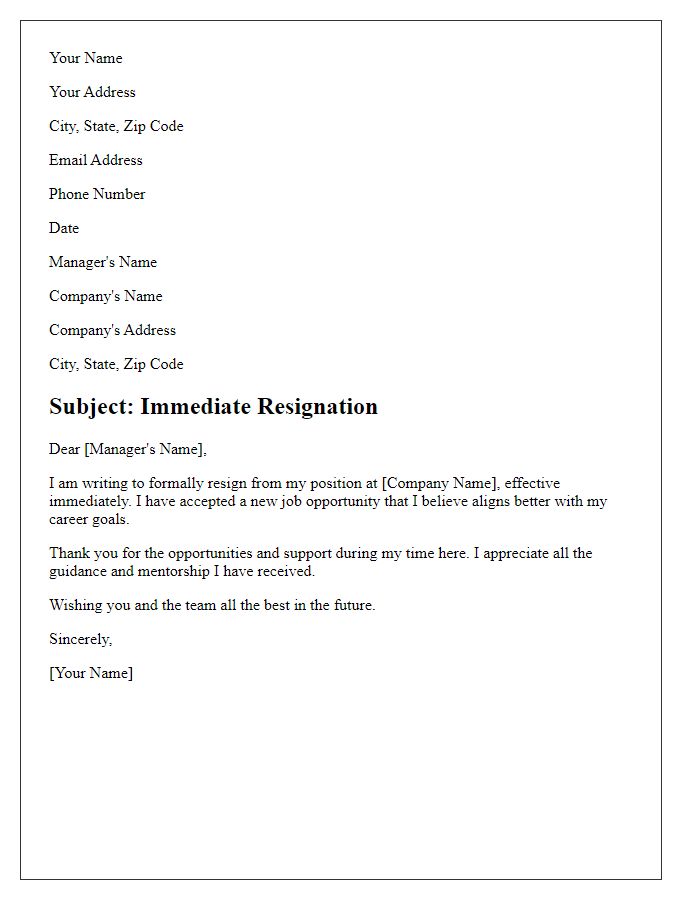
Letter template of immediate effect resignation for educational pursuits
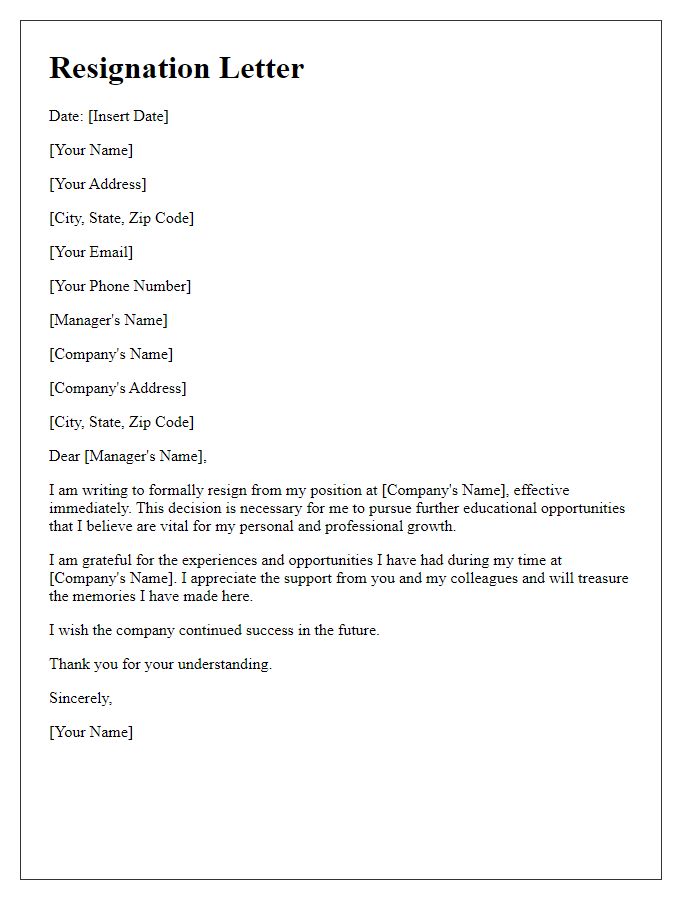
Letter template of immediate effect resignation for mental health reasons
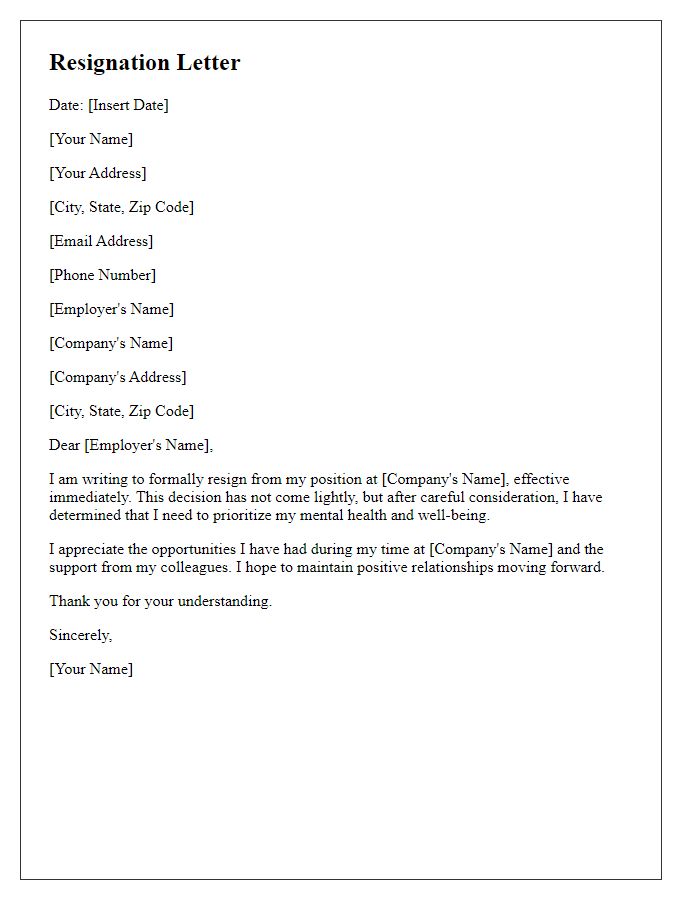

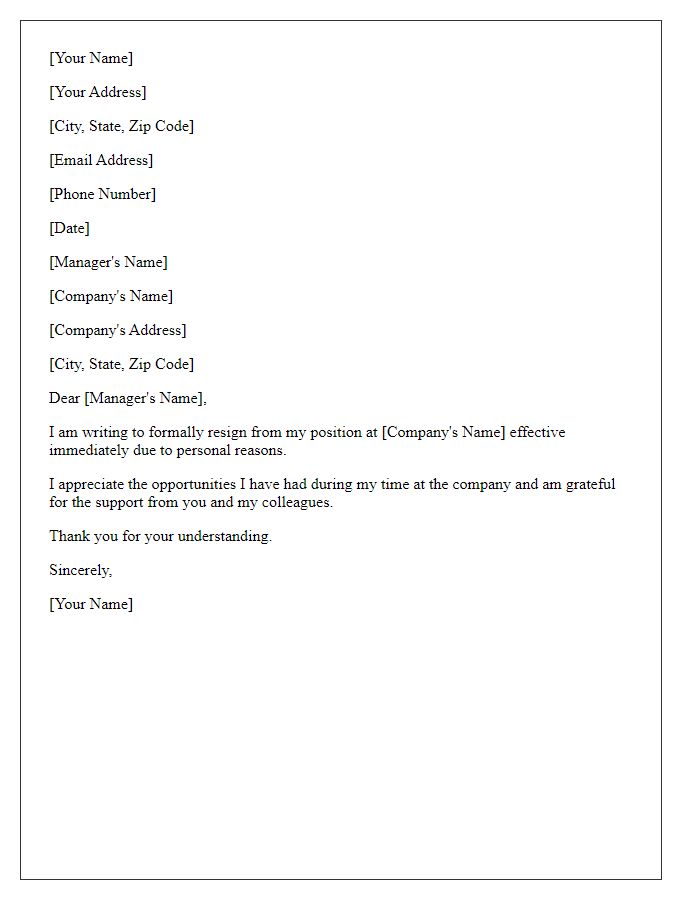
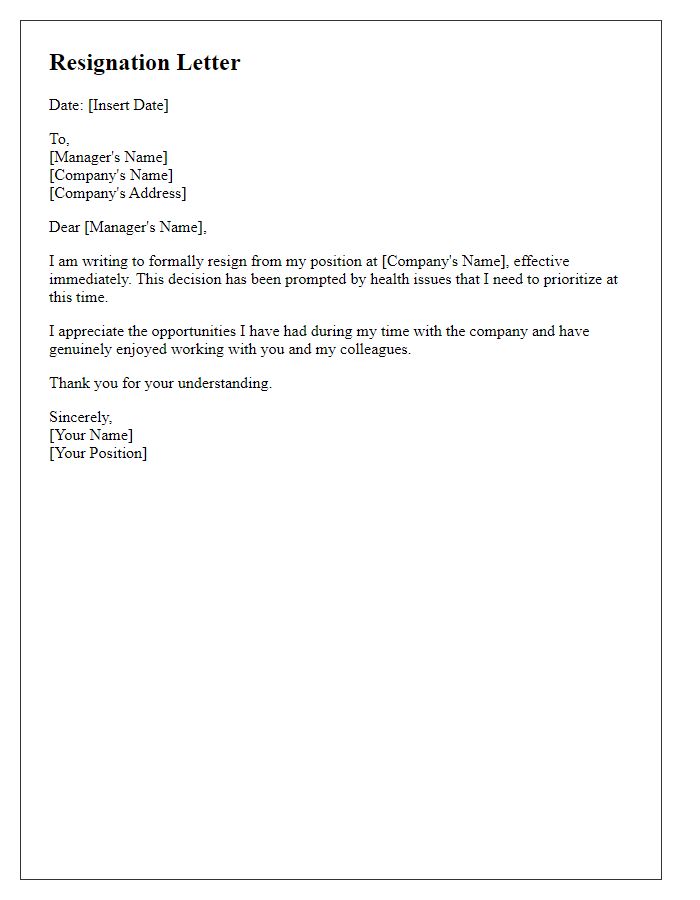
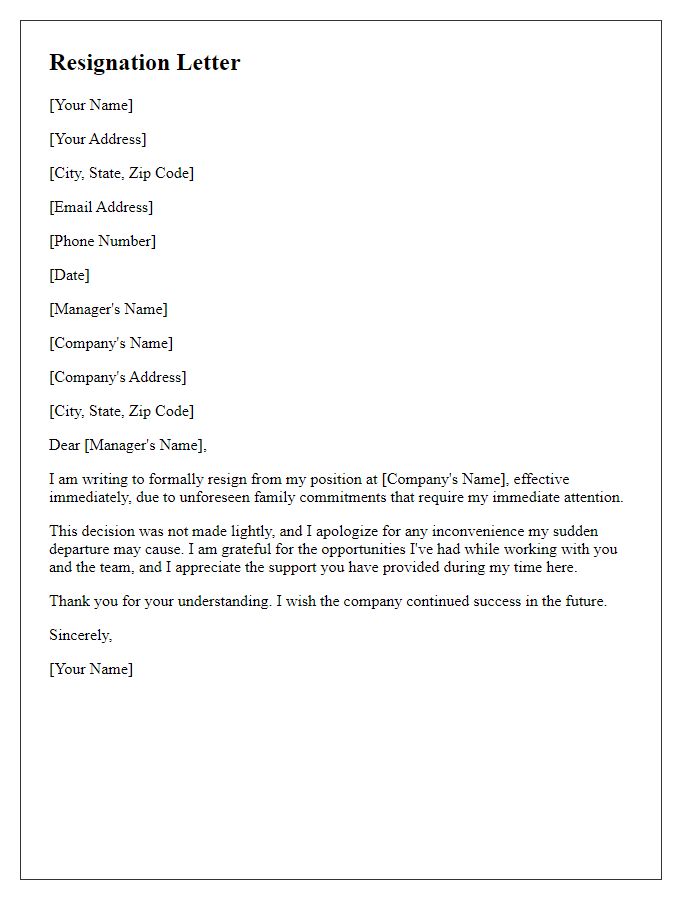
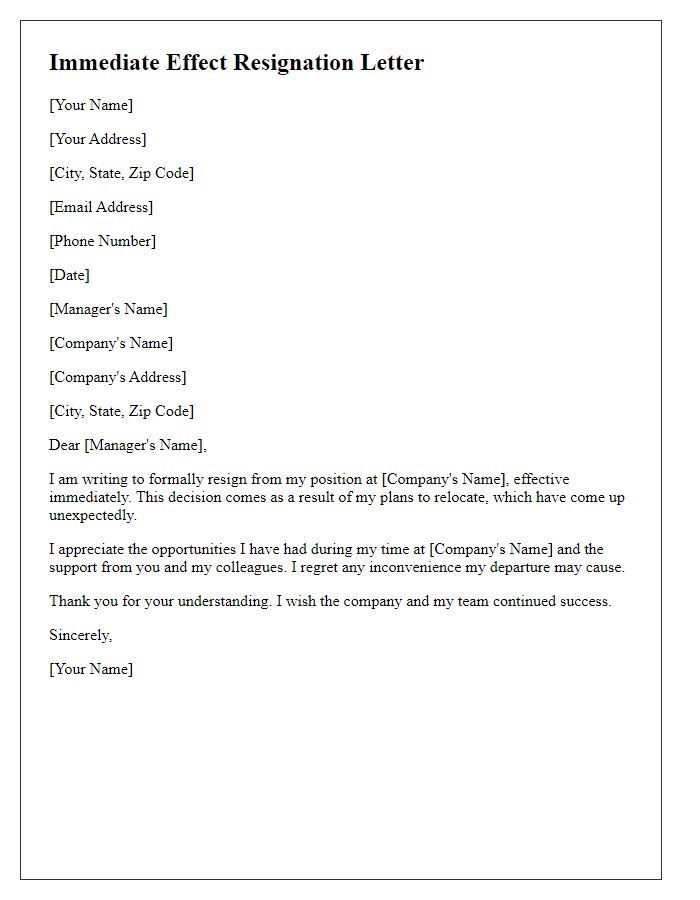
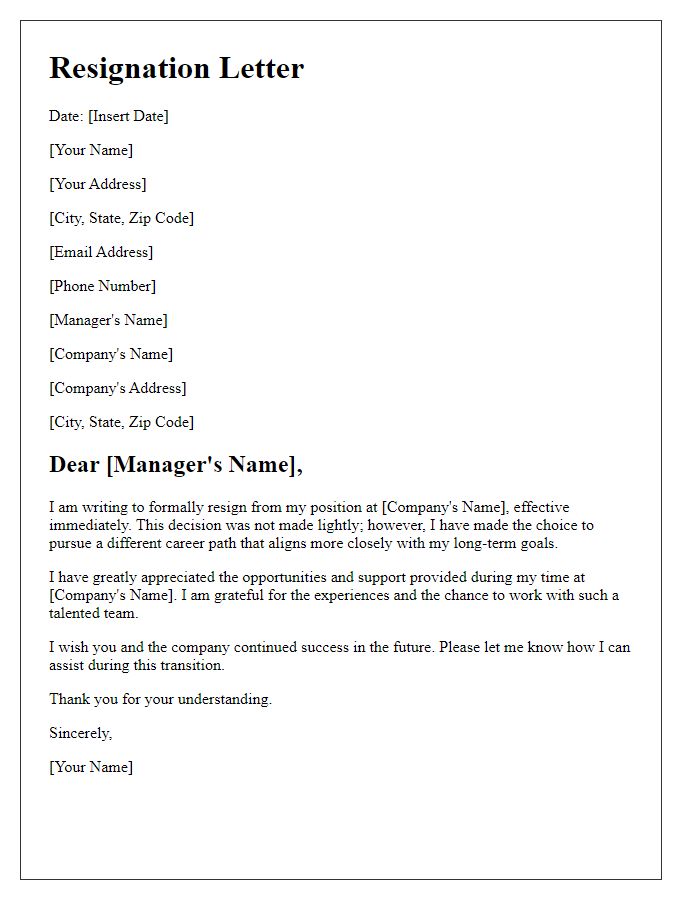
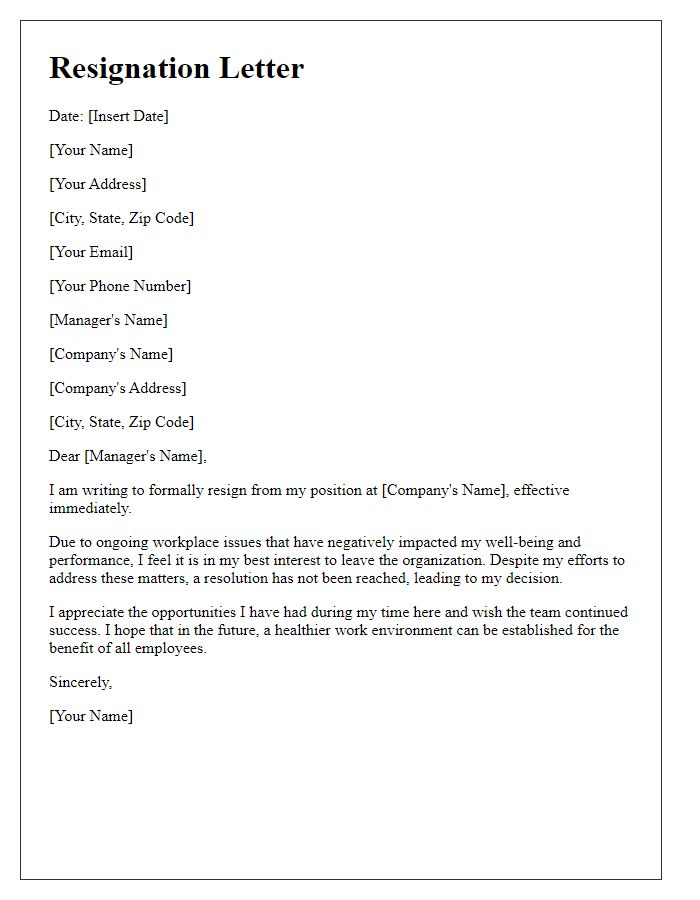
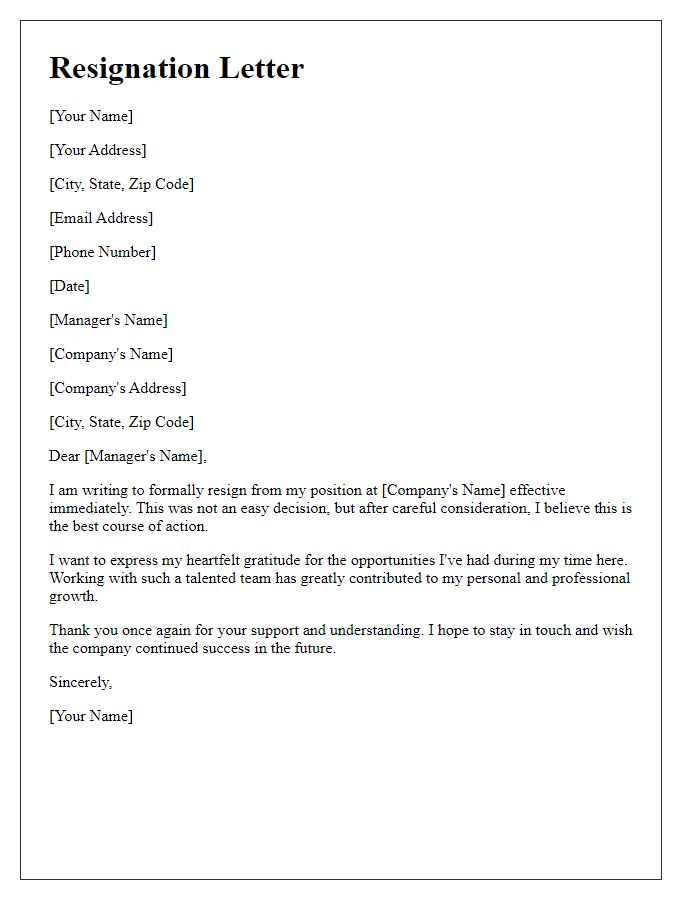


Comments